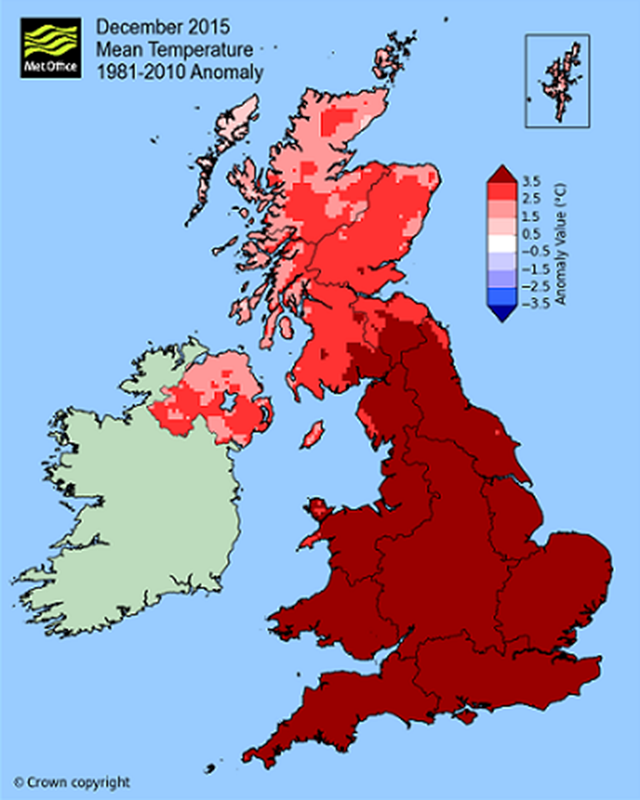December 2015 was the wettest and warmest month ever recorded in UK – ‘We have known for a very long time that these signs were likely to be one of the earliest symptoms of climate change, and now we are seeing them’
By Damian Carrington
5 January 2016 (Guardian) – December was the wettest month ever recorded in the UK, with almost double the rain falling than average, according to data released by the Met Office on Tuesday. Last month saw widespread flooding which continued into the new year, with 21 flood alerts in England and Wales and four in Scotland in force on Tuesday morning. The record for the warmest December in the UK was also smashed last month, with an average temperature of 7.9C, 4.1C higher than the long-term average. Climate change has fundamentally changed the UK weather, said Prof Myles Allen, at the University of Oxford: “Normal weather, unchanged over generations, is a thing of the past. You are not meant to beat records by those margins and if you do so, just like in athletics, it is a sign something has changed.” The Met Office records stretch back to 1910 and, while December saw a record downpour particularly affecting the north of England, Scotland and Wales, 2015 overall was only the sixth wettest year on record.
The high temperatures in December would normally be expected in April or May and there was an almost complete lack of air frost across much of England. The average from 1981-2010 was for 11 days of air frost in December, but last month there were just three days. Across 2015, the average UK temperature was lower than in 2014, though globally 2015 was the hottest year on record. Allen said it has been predicted as far back as 1990 that global warming would mean warmer, wetter winters for the UK, with more intense rainstorms. The flooding caused by Storm Desmond, centred on Cumbria, is estimated to have been made 40% more likely by climate change. “If an athlete starts popping pills, it does not guarantee they win every race, but it does change their chances,” he told the BBC. “The physics [of climate change] is relatively simple: as we warm the atmosphere, the weather systems that move in from the Atlantic contain more moisture, so they dump more rain.” “We have known for a very long time that these signs were likely to be one of the earliest symptoms of climate change and now we are seeing them, it’s not very surprising,” Allen said. [more]


The climate of a location is affected by its latitude, terrain, and altitude, as well as nearby water bodies and their currents. Climates can be classified according to the average and the typical ranges of different variables, most commonly temperature and precipitation…
Murree Temperature Today